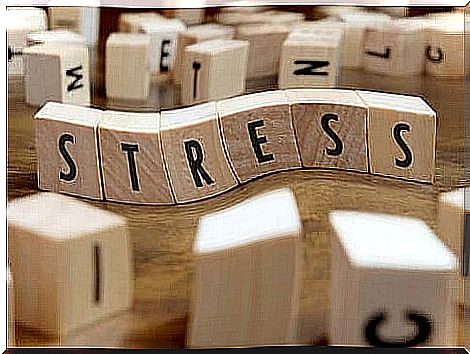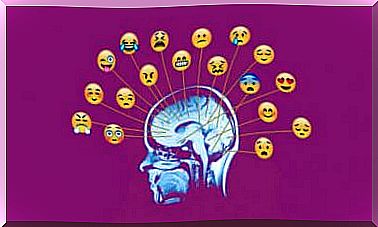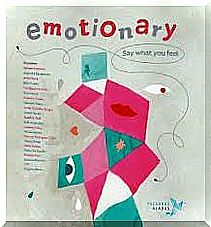Chronic Stress Can Cause You To Lose Memory

Chronic stress can affect your life without you even knowing it. Living under chronic stress is like living in a high-speed train. To begin with, everything will work normally and you are grateful that it goes so fast. Little by little, you realize that you are barely enjoying the view and that your body and mind are beginning to resist the trip.
Thich Nhat Hanh, the famous Buddhist monk and author of many books, including Being Peace , states that your feelings and emotions are like clouds coming and going in the wind. This is true and in the middle of it it is difficult to find your balance, get your inner peace and let your mind work properly.
It is not easy to deal with the psychological effects that stress and anxiety have on your mind. The problem, however, is that experiencing chronic stress makes it even worse. Being in a state of chronic stress for a long time will cause a lot of damage and you will start to see the hidden effects of it.
You need to realize that being in a stressful environment or during stressful situations can negatively affect your body. It can lead to muscle pain, digestive problems, lack of sleep and many other factors that affect your quality of life. However, there is another thing that is worth noting: You may also experience memory loss.

Chronic stress and gradual memory loss
When you are stressed, you feel that the world around you is spinning too fast. However, it is the opposite. Your cognitive skills will be reduced. Among other things, it is more difficult for you to focus, make decisions and start a new task. Also, your mind plays scary games with your head and creates doubts and threats that are not real.
It may seem redundant, but stress creates more stress. Thus, even when you notice headaches, dizziness and difficulty sleeping, you do not realize how harmful it is to your emotional and cognitive performance. Feeling unwell, helpless, unmotivated and forgetting things are symptoms you need to take seriously.
Chronic stress and memory loss
From time to time it is not dangerous. In most cases, stress can help you achieve certain goals, overcome certain challenges and make it easier for you to move forward with things. However, if this condition becomes permanent, you will begin to see its hidden effects.
Dr. Jannine Wirkner from the University of Greifswald conducted studies that show something important. Acute stress in short amounts can improve memory. This is great when you need to take tests. However, chronic stress and the constant release of cortisol make it harder for you to create new memories.
Stress can disrupt every single one of the brain’s memory processes. This means that it interrupts codification, consolidation and recovery.

Chronic stress and its effects on the hippocampus and prefrontal cortex
On the other hand, another study conducted by Dr. Kim Jeasokok of the University of Florida shared interesting findings. When cortisol levels are too high, the hippocampus suffers a change in morphology. This brain structure, related to your memory and emotions, shrinks as a consequence of stress hormones.
Similarly, there is another downside to chronic stress. Being on constant alert means that your amygdala stops your activities in the prefrontal cortex. This can make it harder to use logic, reflect on things and make decisions.
The relationship between memory and stress
Chronic stress can make things more complicated than you first thought. Remember that it becomes chronic when you spend weeks or months worrying about something and being under a lot of pressure. This causes the memory to fail. However, post-traumatic stress disorder causes you to remember specific things more deeply.
- As you go through dramatic experiences with a high emotional charge, the hippocampus retains the awful images and emotions indefinitely.
- However, such experiences can also make it more difficult to create new memories. This gives way to reasoning issues such as incorrectly reflective and logical analysis, lack of focus and poor decision-making, among other things.

This shows how complex your brain can be. Despite these circumstances, trauma and how chronic stress affects you, try to remember this. Your brain is like plastic, it can change and reverse these effects.
Physical activities, psychological therapy, meditation, stress management and a focus on a healthy lifestyle can help you improve the way you feel and the plasticity of your brain. You have to start today!








